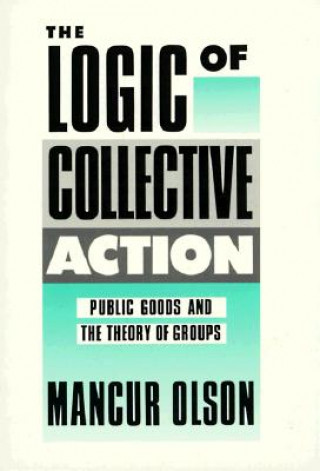
Code: 01390425
Logic of Collective Action
by Mancur Olson
This book develops an original theory of group and organizational behavior that cuts across disciplinary lines and illustrates the theory with empirical and historical studies of particular organizations. Applying economic analysi ... more
- Language:
 English
English - Binding: Paperback
- Number of pages: 198
Publisher: Harvard University Press
- More about this

171.08 zł
RRP: 180.13 zł
You save 9.05 zł

In stock at our supplier
Shipping in 14 - 18 days
You might also like
-

Sapiens
48.93 zł -4 % -

The Lord of the Rings Deluxe Edition
164.38 zł -7 % -

Driven to Distraction (Revised)
79.90 zł -13 % -

Complete Calvin and Hobbes
504.54 zł -13 % -

The Art of Crash Bandicoot 4: It's about Time
179.31 zł -9 % -

En Plein Air: Watercolor
61.73 zł -23 % -

The Tipping Point
49.85 zł -19 % -

Pathfinder Dark Archive Pocket Edition (P2)
113 zł -6 % -

Elmer
38.07 zł -19 % -

Soviet Asia
115.95 zł -14 % -

Wynd Book One: Flight of the Prince
52.38 zł -23 % -

Monocle Travel Guide to London
76.14 zł -9 % -

Character Design Quarterly 23
67.31 zł -9 % -
![Business Cycles [Volume One] Business Cycles [Volume One]](https://media.libris.to/jacket/15822298t.jpg)
Business Cycles [Volume One]
117.67 zł -

Marvel Contest of Champions: The Art of the Battlerealm
140.12 zł -23 % -

Oxford IB Study Guides: Chemistry for the IB Diploma
162.96 zł -6 % -

Revolt of the Masses
67.11 zł -8 % -

Villain
43.04 zł -23 % -

Power to Compete
100.72 zł -11 % -

Music Is History
103.15 zł -14 % -

Ten Great Economists
143.97 zł
Give this book as a present today
- Order book and choose Gift Order.
- We will send you book gift voucher at once. You can give it out to anyone.
- Book will be send to donee, nothing more to care about.
More about Logic of Collective Action
You get 99 loyalty points
 Book synopsis
Book synopsis
This book develops an original theory of group and organizational behavior that cuts across disciplinary lines and illustrates the theory with empirical and historical studies of particular organizations. Applying economic analysis to the subjects of the political scientist, sociologist, and economist, Mancur Olson examines the extent to which the individuals that share a common interest find it in their individual interest to bear the costs of the organizational effort. The theory shows that most organizations produce what the economist calls public goods goods or services that are available to every member, whether or not he has borne any of the costs of providing them. Economists have long understood that defense, law and order were public goods that could not be marketed to individuals, and that taxation was necessary. They have not, however, taken account of the fact that private as well as governmental organizations produce public goods. The services the labor union provides for the worker it represents, or the benefits a lobby obtains for the group it represents, are public goods: they automatically go to every individual in the group, whether or not he helped bear the costs. It follows that, just as governments require compulsory taxation, many large private organizations require special (and sometimes coercive) devices to obtain the resources they need. This is not true of smaller organizations for, as this book shows, small and large organizations support themselves in entirely different ways. The theory indicates that, though small groups can act to further their interest much more easily than large ones, they will tend to devote too few resources to the satisfaction of their common interests, and that there is a surprising tendency for the lesser members of the small group to exploit the greater members by making them bear a disproportionate share of the burden of any group action. All of the theory in the book is in Chapter 1; the remaining chapters contain empirical and historical evidence of the theory s relevance to labor unions, pressure groups, corporations, and Marxian class action.
 Book details
Book details
Book category Books in English Economics, finance, business & management Economics
171.08 zł
- Full title: Logic of Collective Action
- Author: Mancur Olson
- Language:
 English
English - Binding: Paperback
- Number of pages: 198
- EAN: 9780674537514
- ISBN: 0674537513
- ID: 01390425
- Publisher: Harvard University Press
- Weight: 196 g
- Dimensions: 203 × 142 × 14 mm
Trending among others
-
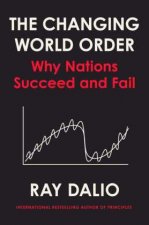
Principles for Dealing with the Changing World Order
88.74 zł -19 % -

Team Topologies
105.90 zł -9 % -

Freakonomics
34.82 zł -19 % -

Misbehaving - The Making of Behavioral Economics
46.50 zł -9 % -

Indispensable Milton Friedman
111.79 zł -11 % -

Little Book of Economics
47.71 zł -23 % -

Why Nations Fail
44.77 zł -19 % -

Pyramid Principle, The
181.65 zł -9 % -

Essential Mathematics for Economic Analysis
318.42 zł -7 % -
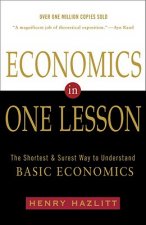
Economics In One Lesson
76.14 zł -13 % -

Predictably Irrational
63.35 zł -19 % -

Price of Inequality
46.50 zł -9 % -

(Mis)Behaviour of Markets
61.73 zł -23 % -

Debt, 10th Anniversary Edition
135.34 zł -12 % -

A-Level Economics: Year 1 & 2 Complete Revision & Practice (with Online Edition)
121.13 zł -10 % -

The Invisible Hand
33.90 zł -23 % -

Liar's Poker
61.22 zł -

Rational Optimist
44.77 zł -19 % -

Irrational Exuberance
89.14 zł -7 % -
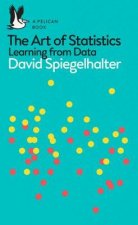
Art of Statistics
49.85 zł -19 % -

Scrum - A Pocket Guide - 3rd edition
97.37 zł -5 % -

Hypomanic Edge
100.51 zł -3 % -
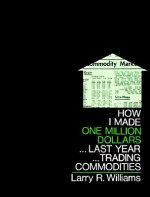
How I Made One Million Dollars Last Year Trading Commodities
198.60 zł -9 % -
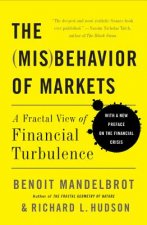
Misbehavior of Markets
114.93 zł -

Econometric Analysis, Global Edition
350.91 zł -

Cartoon Introduction to Economics
79.90 zł -13 % -

Economics: The User's Guide
58.27 zł -19 % -
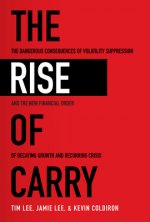
Rise of Carry: The Dangerous Consequences of Volatility Suppression and the New Financial Order of Decaying Growth and Recurring Crisis
132.70 zł -7 % -

Myth of Capitalism - Monopolies and the Death of Competition
111.79 zł -11 % -

How Rich Countries Got Rich and Why Poor Countries Stay Poor
70.97 zł -23 % -

Business Etiquette in Brief
63.35 zł -8 % -

Intermediate Microeconomics and Its Application
452.66 zł -
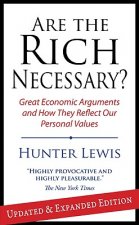
Are the Rich Necessary?
54.01 zł -6 % -

Economic Point of View
115.44 zł -

Discovery, Capitalism & Distributive Justice
93.81 zł -

Driving Digital Transformation
93.91 zł -23 % -

Start-Up Nation
41.32 zł -19 % -

Economic Facts and Fallacies
81.83 zł -10 % -

Decision Book
77.36 zł -7 % -
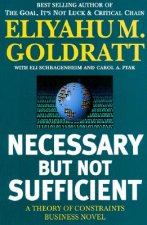
Necessary but Not Sufficient
82.74 zł -8 % -

Freakonomics
29.54 zł -19 % -

Economics Book
88.74 zł -19 % -

Leading at a Higher Level
124.78 zł -9 % -

Principles of Economics
75.74 zł -3 % -

Macroeconomics For Dummies
100.51 zł -11 % -

45 Second Presentation That Will Change Your Life
59.90 zł -

Economics of the Public Sector
356.29 zł -

Factfulness
52.38 zł -10 % -

Currency Wars
66.80 zł -19 %
safisfied customers
Since 2008, we have served long line of book lovers, but each of them was always on the first place.
Copyright! ©2008-24 libristo.pl All rights reservedPrivacyPoučení o cookies


 21 million books
21 million books Delivery 12.99 zł
Delivery 12.99 zł (32) 444 93 66 (8-15.30h)
(32) 444 93 66 (8-15.30h)